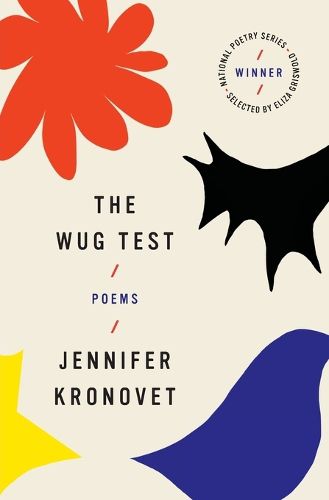Readings Newsletter
Become a Readings Member to make your shopping experience even easier.
Sign in or sign up for free!
You’re not far away from qualifying for FREE standard shipping within Australia
You’ve qualified for FREE standard shipping within Australia
The cart is loading…






Jennifer Kronovet’s poetry is inflected by her fraught, ecstatic relationship with language-sentences, words, phonemes, punctuation-and how meaning is both gained and lost in the process of communicating. Having lived all over the world, both using her native tongue and finding it impossible to use, Kronovet approaches poems as tactile, foreign objects, as well as intimate, close utterances.
In The Wug Test, named for a method by which a linguist discovered how deeply imprinted the cognitive instinct toward acquiring language is in children, Kronovet questions whether words are objects we should escape from or embrace. Dispatches of text from that researcher, Walt Whitman, Ferdinand de Saussure, and the poet herself, among other voices, are mined for their futility as well as their beauty, in poems that are technically revealing and purely pleasurable. Throughout, a boy learns how to name and ask for those things that makes up his world.
$9.00 standard shipping within Australia
FREE standard shipping within Australia for orders over $100.00
Express & International shipping calculated at checkout
Jennifer Kronovet’s poetry is inflected by her fraught, ecstatic relationship with language-sentences, words, phonemes, punctuation-and how meaning is both gained and lost in the process of communicating. Having lived all over the world, both using her native tongue and finding it impossible to use, Kronovet approaches poems as tactile, foreign objects, as well as intimate, close utterances.
In The Wug Test, named for a method by which a linguist discovered how deeply imprinted the cognitive instinct toward acquiring language is in children, Kronovet questions whether words are objects we should escape from or embrace. Dispatches of text from that researcher, Walt Whitman, Ferdinand de Saussure, and the poet herself, among other voices, are mined for their futility as well as their beauty, in poems that are technically revealing and purely pleasurable. Throughout, a boy learns how to name and ask for those things that makes up his world.